Economic protests rage worldwide as challenges from inflation, Ukraine war, coronavirus mount
Economic protests are growing in frequency around the world as challenges brought on by soaring inflation, the coronavirus and the war in Ukraine are causing tensions to boil over.
The demonstrations – which reportedly have been met with violence in countries like China – are unfolding across multiple countries in places including the Netherlands, Argentina, Sri Lanka and Albania.
“The resignation of the economy minister showed there is an economic and financial collapse that is affecting the lives of workers, of the whole the population,” Workers’ Party member Marcelo Ramal told Reuters from Argentina, where inflation is currently running at more than 60%. “We must consider that this year we’ll have around 80% to 90% inflation with wages that aren’t rising as fast.”
The grim economic conditions brewing in the third most populous South American country have prompted angry residents to march to the gates of Argentine President Alberto Fernandez’s palace, prompting the embattled leader to declare this past weekend that “we must walk the path towards fiscal balance and stabilize the currency.”
CHINESE COPS ‘BEAT’ PROTESTERS OUTRAGED AT HAVING BANK ACCOUNTS FROZEN
Across the Atlantic, in the Netherlands, farmers have been wreaking havoc after forming their own version of Canada’s “Freedom Convoy,” blocking highways with tractors, setting bales of hay on fire and taking other actions to protest the government’s recent goal to cut emissions that could force some farms to shutter.
The Dutch government is aiming to cut nitrogen and ammonia emissions by 50% by 2030 in a bid to improve air, land and water quality. The plans include cutting back on fertilizer used on farms and ratcheting back the number of livestock by an estimated 30%.
However, the farmers fear the measures will hurt their livelihoods and used their tractors and trucks to block supermarket distribution centers, leading briefly to some shortages of fresh produce.
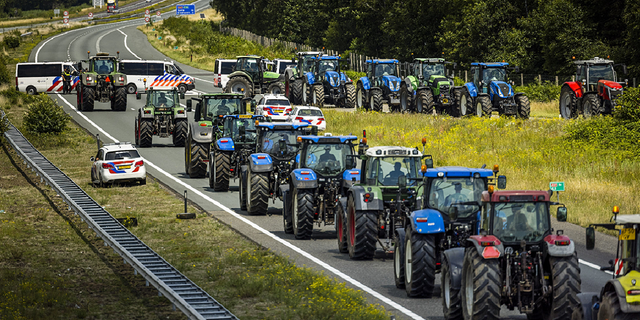
Farmers also clashed with police outside the home of the minister in charge of the government’s nitrogen policies. An officer opened fire on a tractor driven by a 16-year-old. After initially being held on suspicion of attempted manslaughter, the young driver was released without charge.
In Albania last week, thousands of opposition supporters held a peaceful protest in the capital Tirana, urging the center-left government to resign because of the cost-of-living crisis and alleged corruption.
Albania has seen a hike in the prices of basic food products and fuel linked to the war in Ukraine and the lasting impact of the coronavirus pandemic.
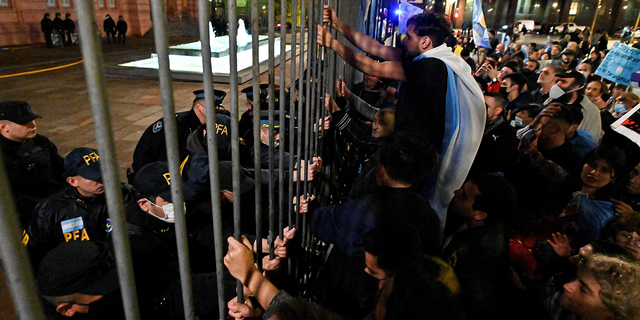
DUTCH FARMERS FORM ‘FREEDOM CONVOYS’ TO PROTEST GOVERNMENT’S STRICT ENVIRONMENTAL RULES
In the southeast Asian country of Sri Lanka, protesters are vowing to occupy the country’s presidential palace and prime minister’s home until they are removed from power.
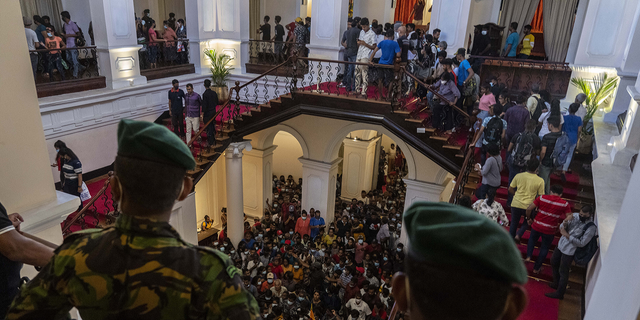
Facing severe shortages of food, fuel and medicine, demonstrators on Saturday stormed embattled President Gotabaya Rajapaksa’s home, his seaside office and the official residence of his prime minister.
Both officials said they would concede to demands that they resign. For days, people have flocked to the presidential palace turning it into almost a tourist attraction — swimming in the pool, marveling at the paintings and lounging on the beds piled high with pillows. At one point, they also burned the prime minister’s private home.
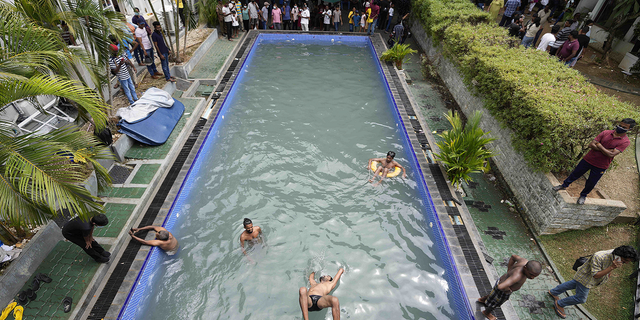
In China, police “beat” citizens who gathered to protest against having their bank accounts frozen due to COVID-19 policies on Sunday, according to protesters.
Protests centered on three banks serving primarily rural communities that have frozen millions of dollars in accounts since April. Roughly 1,000 protesters gathered to call for the release of their funds outside the Zhengzhou branch of the Chinese Central Bank, but they say they were met with violence.
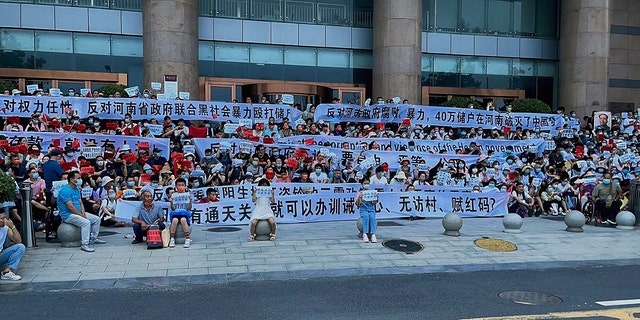
“What is being protested… are draconian regulations that are crushing agriculture and energy sectors in the name of extremist climate policies,” Victoria Coates, a former Deputy National Security Advisor during the Trump Administration, told Fox News Digital. “Now we hear Colombia and even Canada may follow suit.
“If the Biden Administration continues with its current policies,” she added, “I worry America may not be far behind.”
Fox News’ Emma Colton, Anders Hagstrom and the Associated Press contributed to this report.
Read the full article Here


